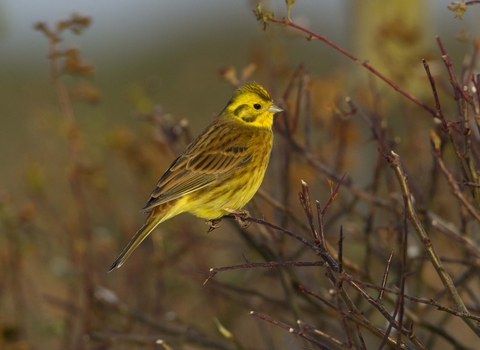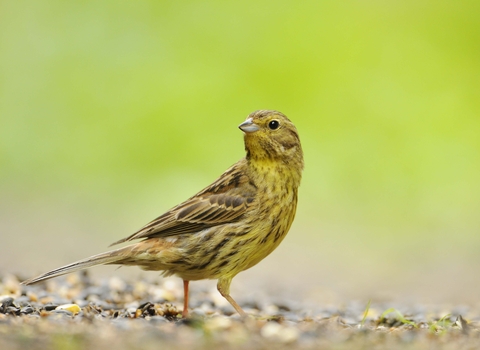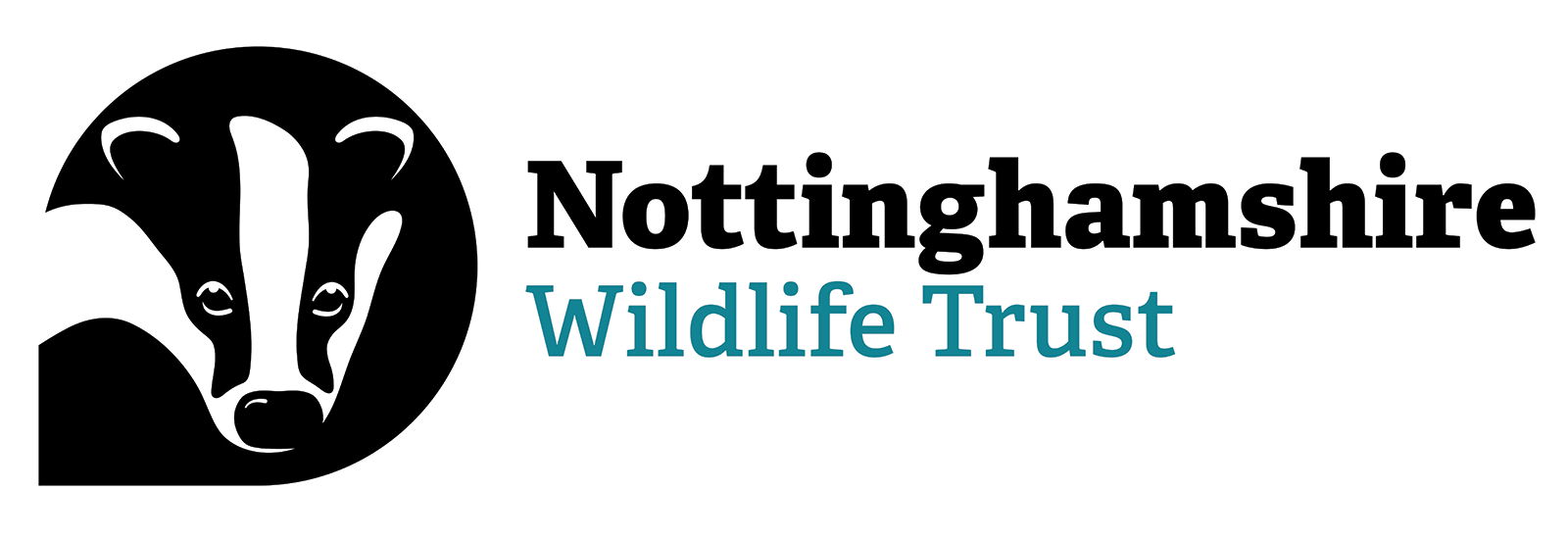
Yellowhammer ©Mark Hamblin/2020VISION

©Fergus Gill/2020VISION
Yellowhammer
Like many of our farmland birds, the yellowhammer has declined in number in recent years. Spot this bright yellow bird singing from the top of a bush or fence, or in a mixed-species flock in winter.
Scientific name
Emberiza citrinellaWhen to see
January to DecemberSpecies information
Category
Statistics
Length: 16cm Wingspan: 26cm Weight: 31g Average Lifespan: 3 yearsClassified in the UK as Red under the Birds of Conservation Concern 5: the Red List for Birds (2021). Protected in the UK under the Wildlife and Countryside Act, 1981. Priority Species under the UK Post-2010 Biodiversity Framework.
About
The yellowhammer is a sparrow-sized, bright yellow bird of woodland edges, hedgerows, heath and farmland that feeds on seeds and invertebrates. In the winter, it will join mixed flocks of buntings, finches and sparrows to feed on seeds on farmland. Yellowhammers are often seen perched on top of bushes singing their 'a little bit of bread and no cheese' song. The female builds a cup-shaped nest from grass and moss, laying between two and six eggs.How to identify
The male yellowhammer is a striking bird: he has a bright yellow head and belly, with an orangey chest and streaky brown back. Female buntings, including female yellowhammers and reed buntings, can be very difficult to tell apart.Distribution
Widespread.Did you know?
During winter, yellowhammers may find it hard to find food in their open habitats because of snow cover, so they will move to more inhabited areas like farmyards and even rural gardens.Watch
Yellowhammer (https://vimeo.com/453689501)
Yellowhammer by John Bridges
